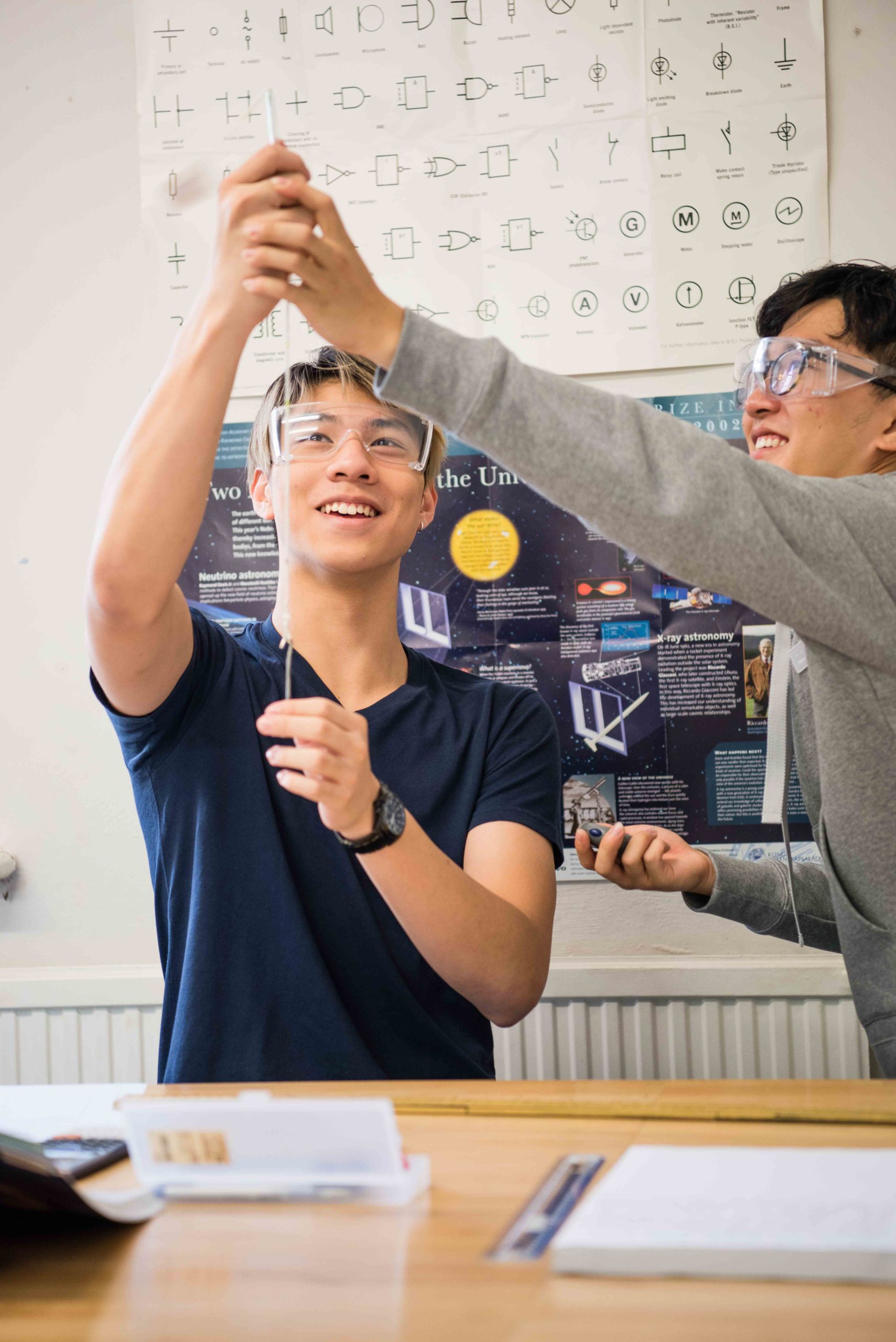A-level Physics
Physics is the study of the world around us using applied mathematics and practical skills.
Apply online
Exam Board: OCR
Physics
Physics is among the most rigorous and fascinating of sciences and is the basis for Chemistry and Biology. Students studying it at A-level at Bosworth will study, among other things, nuclear physics, gravitational and electromagnetic fields, mechanics, circuits, materials and electromagnetic radiation. There is plenty of time devoted to practical work exploring these topics and homework will be a mixture of problem-solving, research and evaluation of practical results.
This course is only available for the September start 2 year A-level.
Entry Requirements
A good grounding in Physics and Maths is essential. Candidates should have attained at least a grade 6 at GCSE level but we strongly recommend a grade 7 or higher in order to attain the best possible results. Knowledge of GCSE Chemistry is also very helpful in A-level Physics but not essential. Students will need a high level of motivation and the ability to produce careful work with great attention to detail. Homework will consist of a mixture of practical assessment tasks, exam questions, essays and independent research. Physics combines particularly well with Mathematics and Chemistry.
Course Content
In Year 1 students will study:
- Module 1 – Development of practical skills in physics
- Module 2 – Foundations of physics
- Module 3 – Forces and motion
- Module 4 – Electrons, waves and photons
In Year 2 students will study:
- Module 1 – Development of practical skills in physics
- Module 5 – Newtonian world and astrophysics
- Module 6 – Particles and medical physics
Practical Assessment:
You will complete a minimum of 12 required practical activities spread over the 2 years. During these tasks, teachers will assess your practical skills against criteria set by the exam board. If you display competence in all of these skills, you will be awarded a ‘PASS’ grade for the practical endorsement which will be recorded on your exam certificate. Practical work is also assessed in each of the external examination papers.
Where Does it Lead?
A qualification in Physics can lead to a large range of career options, including research and development, computing, science, engineering, mathematics, education, medicine, law and business.











